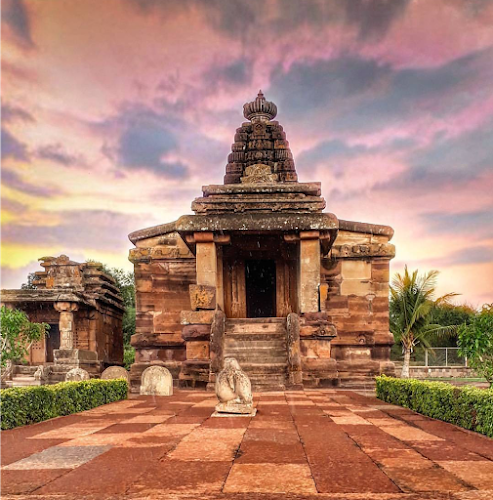
Discover Incredible Places in Aihole
Explore our handpicked collection of breathtaking destinations across India
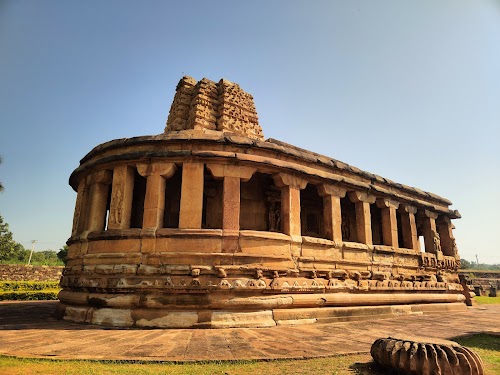
Durga Temple
The Durga Temple in Aihole, despite its name, is not dedicated to the Goddess Durga. It's a captivating example of early Chalukyan architecture, showcasing a unique blend of northern and southern Indian styles. Its apsidal plan, resembling a Buddhist Chaitya hall, is a standout feature. The elevated plinth, intricate carvings, and pillared corridors surrounding the sanctum make it a photographer's delight. Marvel at the detailed sculptures depicting scenes from the Ramayana and Mahabharata. The temple complex also houses other smaller shrines and structures, offering a glimpse into the rich artistic heritage of the region. It's a must-visit for history buffs and architecture enthusiasts.
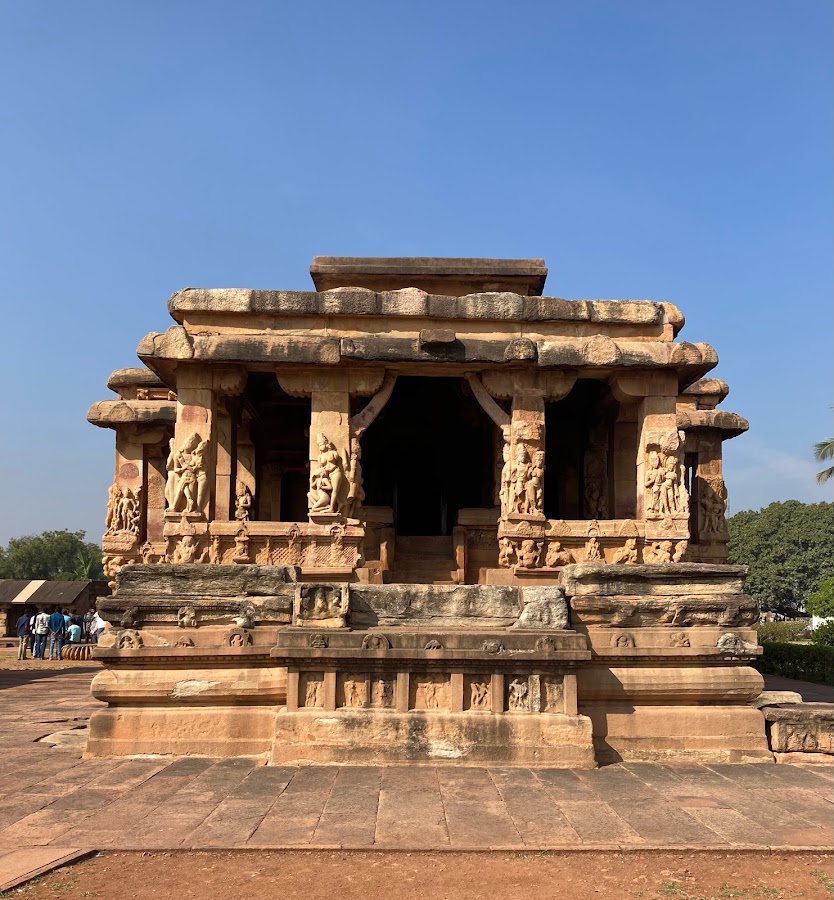
Lad Khan Temple
The Lad Khan Temple, one of the oldest temples in Aihole, is a captivating example of early Chalukyan architecture. Initially believed to be a royal residence, it was later converted into a temple dedicated to Lord Shiva. Its unique structure, resembling a wooden-roofed village house, sets it apart from other temple designs. The temple features a square sanctum, pillared hall, and a mukha-mandapa (entrance hall). The intricate carvings and the overall rustic charm of the temple offer a glimpse into the architectural ingenuity of the Chalukyan era. Visitors can explore the various chambers, admire the detailed sculptures, and soak in the historical ambiance of this ancient site.
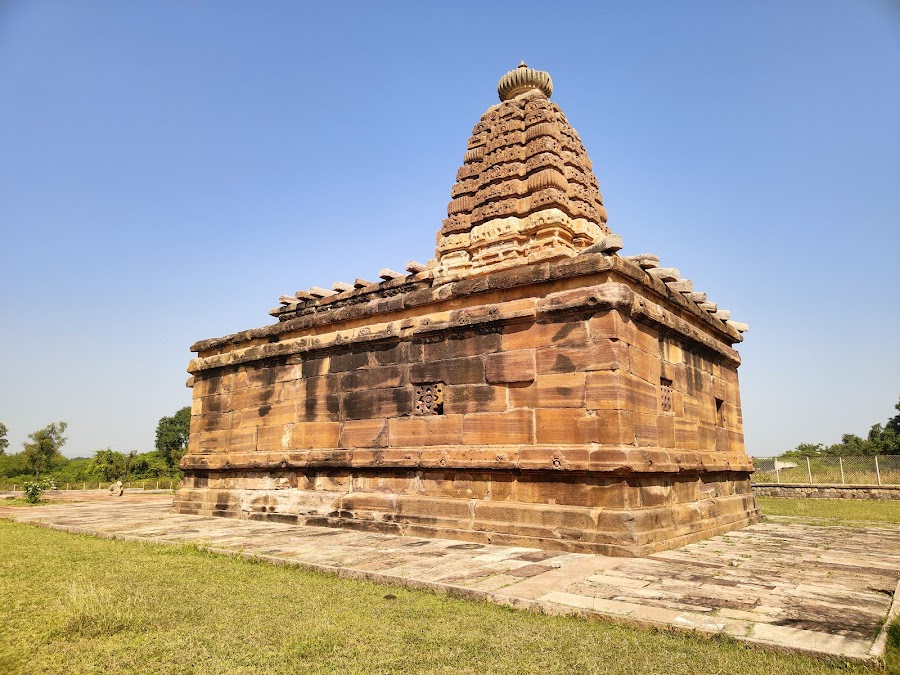
Hucchimalli Temple
The Hucchimalli Temple in Aihole is a significant example of early Chalukyan architecture. Dedicated to Lord Shiva, it showcases a blend of architectural styles, marking a transition from earlier forms to the more ornate structures that would follow. The temple's layout includes a mukhamantapa (entrance porch), a sabhamantapa (assembly hall), and a garbhagriha (sanctum). The shikhara (superstructure) is particularly noteworthy for its Kadamba-Nagara style, reflecting influences from northern India. The temple's intricate carvings and sculptures offer valuable insights into the artistic and religious practices of the Chalukya dynasty. It is one of the must-visit places in Aihole.
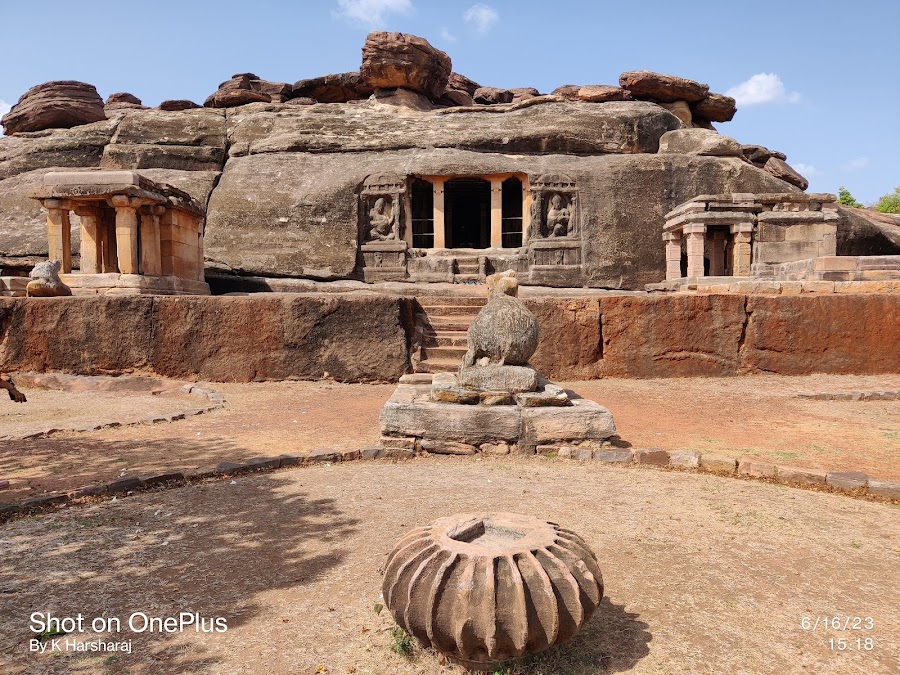
Ravana Phadi Cave Temple
Ravana Phadi Cave Temple, located in Aihole, Karnataka, is a significant example of early Chalukyan rock-cut architecture. The cave dates back to the 6th century CE and is renowned for its intricate carvings and sculptures dedicated to various Hindu deities, particularly Shiva. The main cave features a pillared hall leading to the sanctum, with notable sculptures including Shiva as Nataraja, Ardhanarishvara (a composite of Shiva and Parvati), and the Saptamatrikas (seven mother goddesses). The cave's name, Ravana Phadi, translates to 'Ravana's Cliff,' adding a touch of local legend to its historical significance. The serene atmosphere and the artistic excellence of the carvings make it a must-visit destination for history buffs and art enthusiasts.
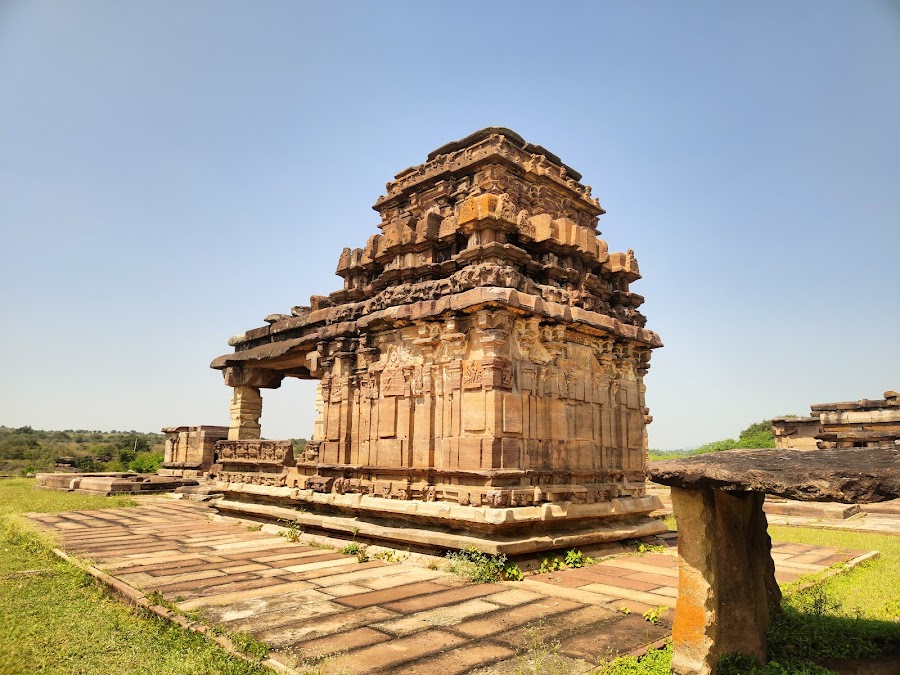
Galaganatha Group of Temples
The Galaganatha Group of Temples in Aihole is a captivating complex showcasing the early Chalukyan architectural style. Dominated by the impressive Galaganatha Temple, dedicated to Lord Shiva, the complex features intricate carvings, pillared halls, and a unique cylindrical sanctum. The temple's most striking feature is the sculpture of Lord Shiva slaying the demon Andhakasura, a testament to the artistic prowess of the Chalukyan artisans. Exploring this group provides a glimpse into the religious and artistic landscape of the 7th and 8th centuries. The surrounding smaller shrines and ruins add to the overall charm and historical significance of the site, making it a must-visit for history buffs and architecture enthusiasts.
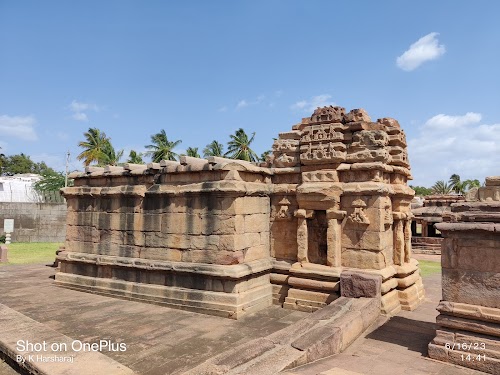
Suryanarayana Temple
The Suryanarayana Temple in Aihole is a captivating architectural marvel dedicated to the Sun God, Surya. Unlike typical South Indian temple architecture, it showcases a unique blend of Chalukyan and North Indian styles. The temple's most striking feature is its intricately carved Surya idol riding a chariot drawn by horses, a relatively rare depiction in this region. The temple complex, though smaller compared to others in Aihole, exudes a serene ambiance and offers a glimpse into the diverse religious influences that shaped the region's artistic heritage. Its well-preserved carvings and distinctive design make it a must-visit for history buffs and art enthusiasts alike. Explore the detailed sculptures depicting scenes from Hindu mythology and appreciate the craftsmanship of the Chalukyan artisans.
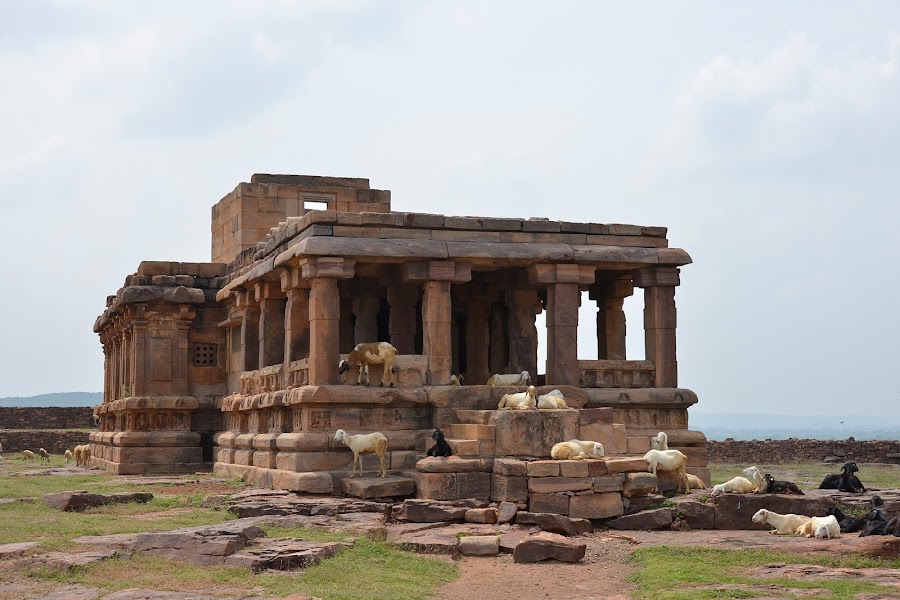
Meguti Jain Temple
The Meguti Jain Temple, perched atop Meguti Hill in Aihole, is a significant early Jain temple dating back to 634 CE. It's renowned for its architectural simplicity and the inscription detailing the reign of Pulakeshin II of the Chalukya dynasty. Though incomplete, the two-story structure offers panoramic views of the Aihole landscape, dotted with numerous other temples. The temple's design reflects a transition from early Chalukya to later Dravidian styles, making it a crucial site for understanding the evolution of temple architecture in the region. Its serene atmosphere and historical importance draw history buffs and spiritual seekers alike.
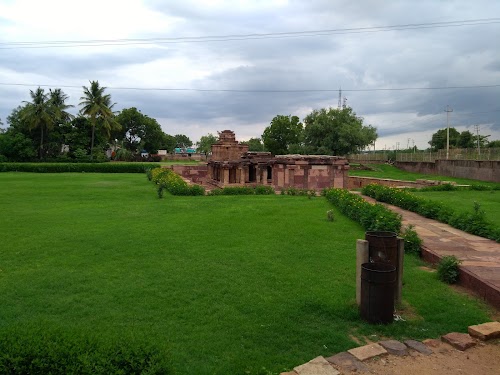
Ambigera Gudi Complex
The Ambigera Gudi complex in Aihole is a captivating group of early Chalukya temples, showcasing the nascent stages of Dravidian architecture. The complex features two prominent temples, each dedicated to Shiva, standing side-by-side. Their simple yet elegant design, characterized by flat roofs, pillared halls, and intricately carved doorways, offers a glimpse into the architectural innovations of the 7th century. The surrounding landscape, dotted with other ancient ruins, enhances the historical ambiance, making it a must-visit for history buffs and architecture enthusiasts. The temples' relative simplicity allows for a more intimate appreciation of the craftsmanship and the spiritual significance of the site. The complex provides a serene and reflective experience, transporting visitors back to a time of artistic and religious flourishing.
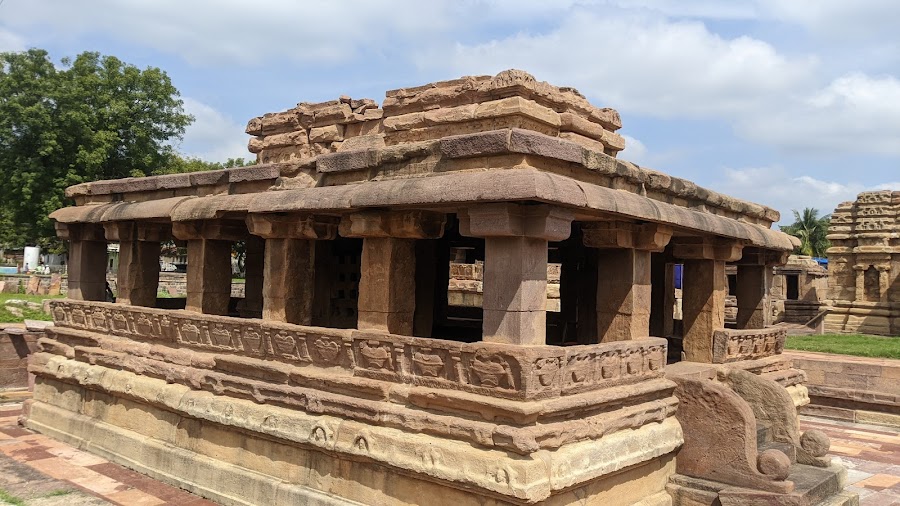
Gaudar Gudi
Gaudar Gudi, also known as the Lad Khan Temple, is one of the oldest temples in Aihole, showcasing early Chalukyan architecture. While technically not a temple dedicated to a specific deity, it served as a community hall (Gaudar means community and Gudi means Temple). Its unique structure resembles a wooden-roofed village house, featuring a flat roof, pillared hall, and a simple, unadorned sanctum. The temple offers a glimpse into the evolution of temple architecture in the region, bridging the gap between rock-cut caves and more elaborate structural temples. Its simplicity and historical significance make it a must-visit for anyone interested in art, architecture, and history.